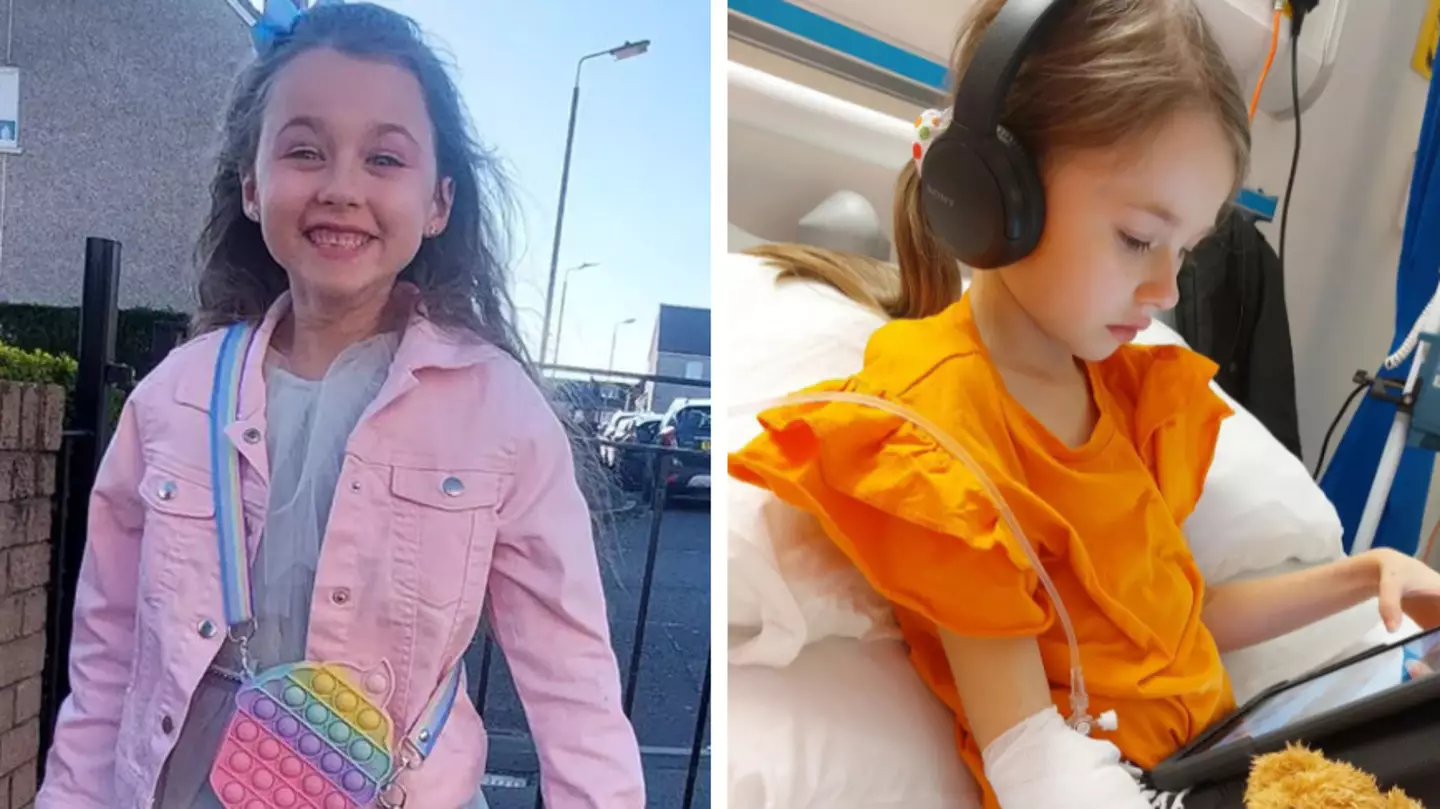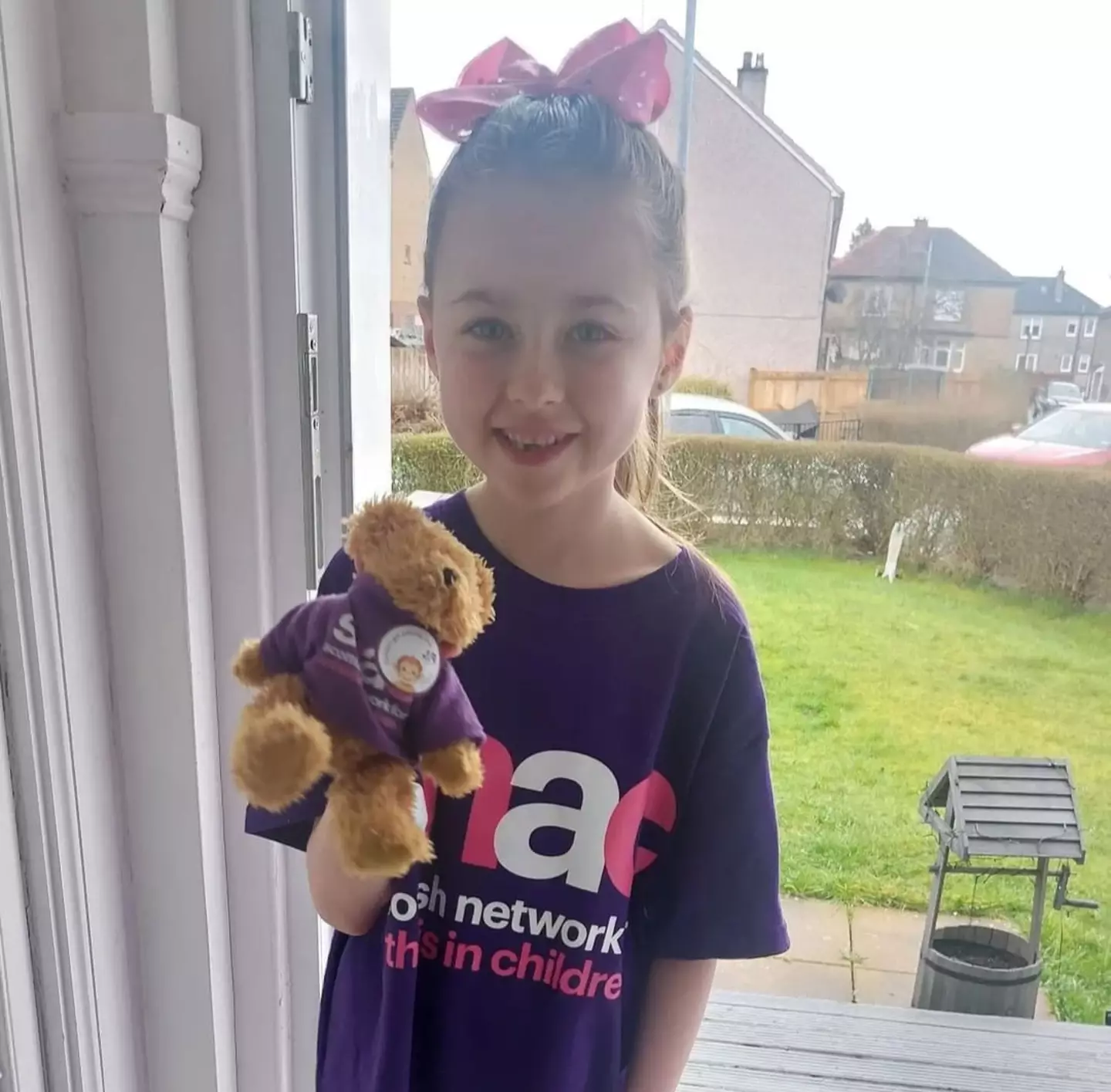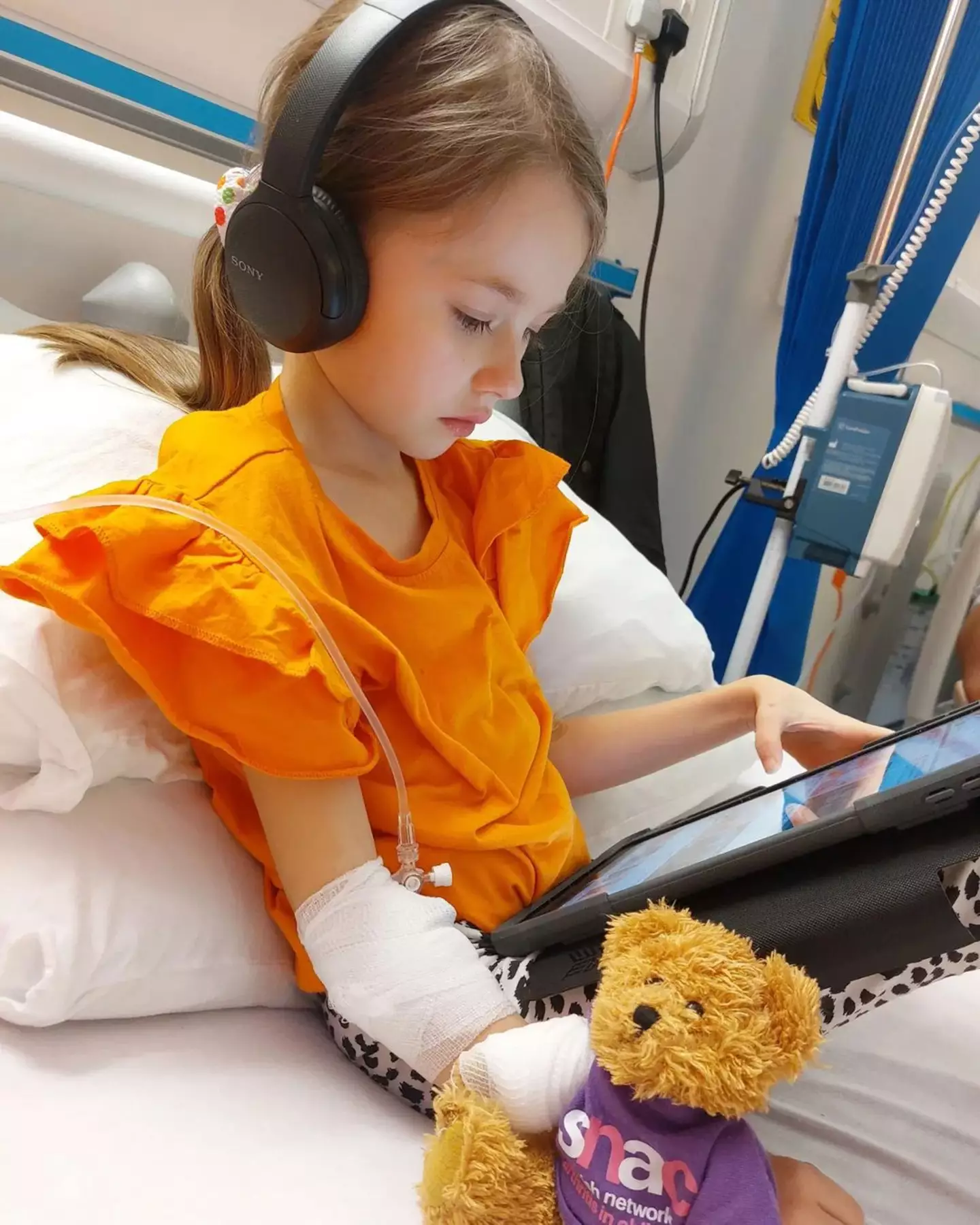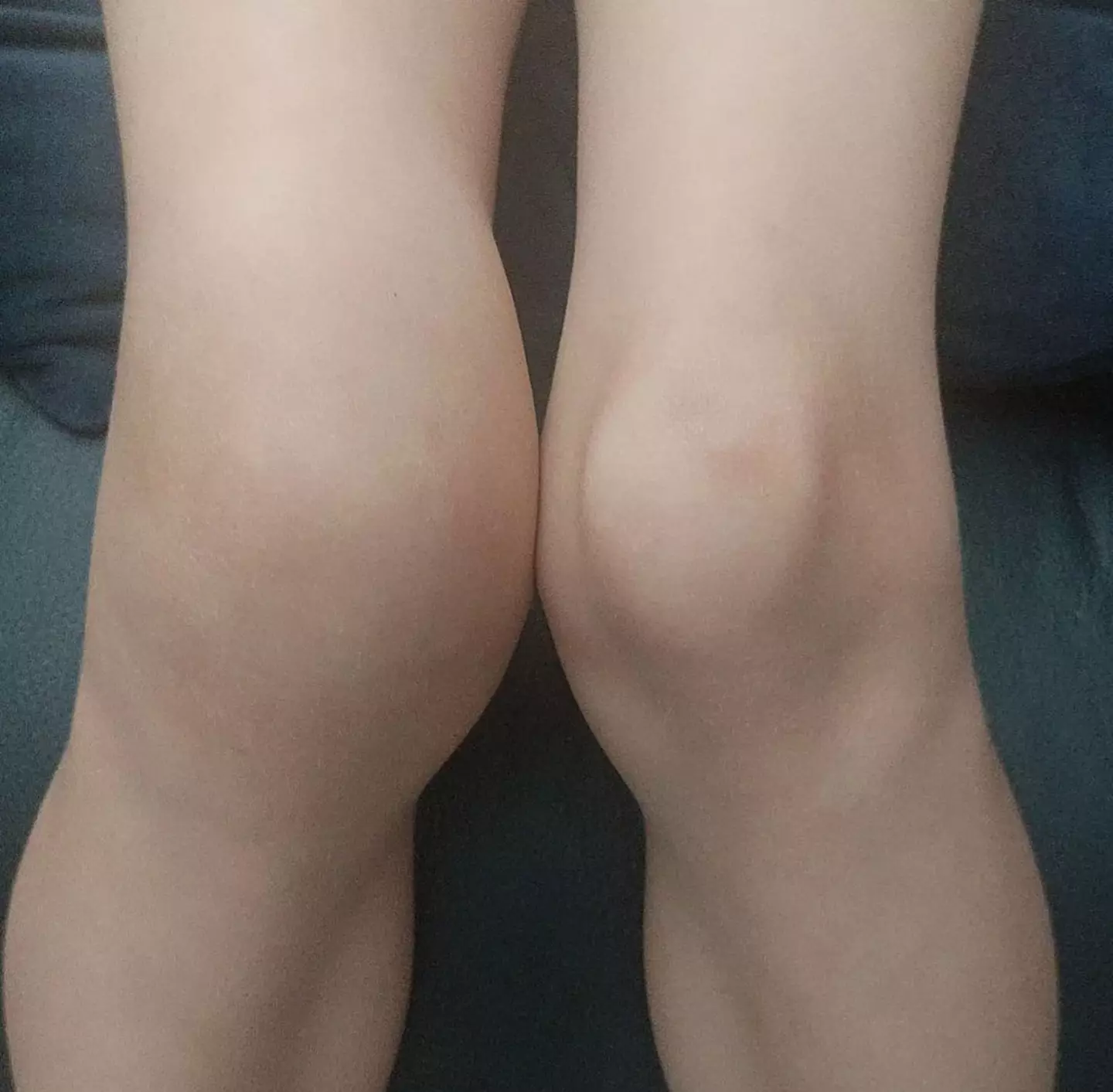
A mum has shared her heartbreak after her six-year-old daughter was diagnosed with arthritis.
Leeanne Taggart, 43, from Glasgow, had never heard of a child having arthritis, as it's 'something you just automatically associate with older people', until her own daughter, Keavagh, was diagnosed with the rare condition juvenile idiopathic arthritis (JIA).
Keavagh's mum said she loved to dance, swim and take part in gymnastics however her condition left her unable to walk without crutches and in pain.
Advert
She was at a birthday party last August when she fell. The following day, Keavagh complained of a sore knee which eventually led to her diagnosis.
"After she fell, Keavagh got up quickly and we never thought much of it," Leeanne said.

The mum continued: "The next day, she told us that her knee was hurting her, and it was very swollen. We just assumed she'd sprained or twisted it, so we took her to A&E where she had an X-ray.
Advert
"They found fluid around her knee, so gave her some painkillers and told us that a physio would be in touch.
"However, within two weeks, it had become so much worse and Keavagh couldn't walk and wasn't eating, so she lost so much weight."
After 'a lot of back and forth to the hospital', Keavagh was eventually given an MRI scan and a face-to-face appointment with a physiotherapist, who referred her to rheumatology.
She was diagnosed the next day.
Advert
"We couldn't get our heads around it at all - it was completely devastating. It is more common than you think," the mum-of-two said.
"All I could think was, how can my six-year-old have arthritis? I made the mistake of googling it and came across lots of horror stories.

"It was terrifying. However, to begin with, Keavagh was oblivious to how bad it could be.
Advert
"She was given crutches and had to stay off school because she couldn't walk."
Leeanne decided against keeping her daughter in the dark about her diagnosis.
The mum explained: "She started having treatments for her arthritis such as cortisone injections into her knees and ankles at first, which really helped, and she left the hospital practically skipping.
"However, her treatment then changed to a weekly injection at the top of her thigh, which turned into a really traumatic experience for her. She would cry, scream, and hide because she hated it so much.
Advert
"It was horrendous to see.
"Her treatment changed again but ended up causing her to have the same anxious reaction. She would even be sick.
"Luckily, she is now on a liquid form of medication which she takes herself every day, and it's fine at the moment.
"As a result of her arthritis, Keavagh also suffers from uveitis which can cause eye pain, changes to your vision, and lead to glaucoma or even blindness in some cases.
"So she has to go to the hospital every six weeks for transfusions to try and prevent her from developing these issues."
Leeanne says Keavagh is doing well at the moment, but her condition could take a turn for the worst as it is an autoimmune disease.

She said: "I think Keavagh was lucky to have had the fall when she did because now she has a diagnosis. It could have gone on for longer and her symptoms could have become much worse.
"We couldn't have got through all of this without the amazing charity, SNAC - the Scottish Network for Arthritis in Children - they have been such incredible support for us."
Arthritis is a common condition that causes pain and inflammation in a joint. It affects people of all ages, not just elderly folks, however the most common type is called osteoarthritis which most often develops in people in their mid-40s or older.
The NHS says that although the cause of juvenile idiopathic arthritis is unknown, the symptoms often improve as the child gets older.
The National Rheumatoid Arthritis Society says approximately 12,000 children and young people (under the age of 16) have JIA, which represents one child in every 1000.
For help and support, please visit the National Rheumatoid Arthritis Society website here.
Featured Image Credit: Caters